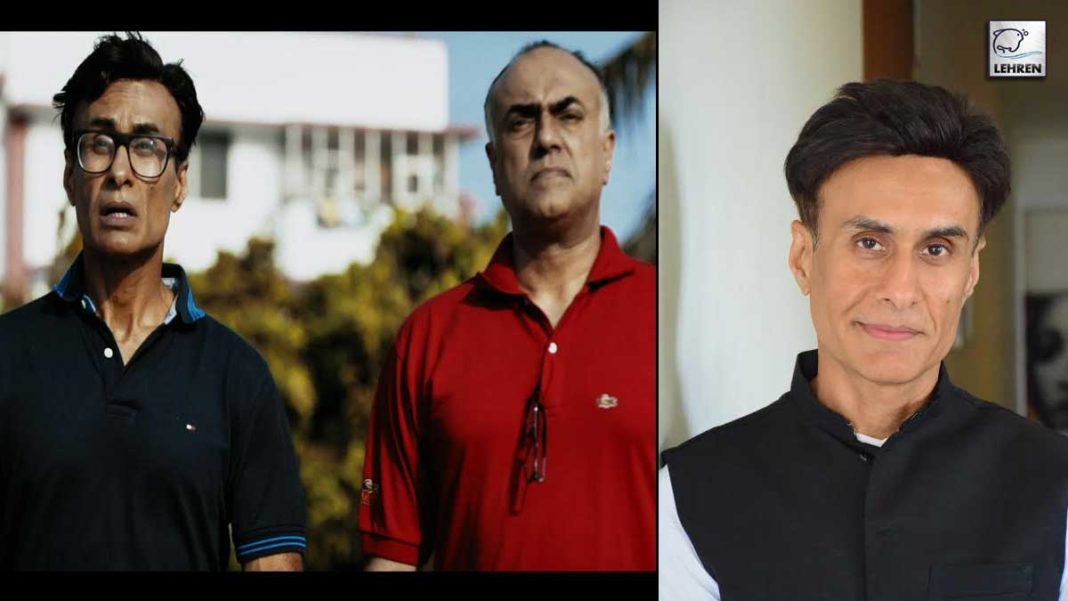In his latest interview, bollywood actor Arif Zakaria says a lot of small and real narratives finding space on OTT.
The nuanced film actor whose latest bollywood film Ahaan got released on Netflix, Arif Zakaria says a lot of small and real narratives finding space on OTT.
Known for his finesse and perfection in acting unconventional characters on screen be it on TV or films flawlessly, his latest movie titled Ahaan has got released on Netflix India and opening up on why OTT is more diverse and intriguing nowadays, Arif Zakaria says a lot of small and real narratives finding space on OTT.
ALSO READ – Netflix’s Never Have I Ever Season 2 Reveals A Love Triangle
Arif Zakaria starrer new bollywood movie ‘Ahaan’ has just dropped on Netflix. The film directed by Nikhil Pherwani narrates the story of a young man with Downs Syndrome, who develops a friendship with a neighbour suffering from Obsessive Compulsive Disorder (OCD). Zakaria, who plays the role of the neighbour, says the story is both heartfelt and unique and sharing more about it, he said, “I was blown away when Nikhil Pherwani narrated the story to me. In fact Abuli Mamaji, who plays the lead part of the person with Downs Syndrome, suffers from the same in real life too. So that’s totally real… The passion of the filmmaker was infectious. He had no money to shoot, which earlier I thought would be an impediment but he managed. The finished product has a nice feel to it, which money could’ve never brought to the film I feel. We all shot it for fun around Mumbai and that was it”.
The film actually had a brief theatrical release in March 2021 but as Arif adds, “Nobody was venturing to cinema halls then because of the pandemic so it felt like the film never released in theatres”.
Calling OTT acting as the saving grace in these times, he says, “A lot of small, perceptive and real narratives are finding a space on OTT. So much content which wouldn’t have got theatres is now getting a space. Being in the business for two decades I have been witness to a lot of subtle changes in the industry. There is a culture of screen tests which wasn’t that prevalent earlier. I really don’t understand this. I mean what do you gauge by performing a scene in front of a young rookie with a handy cam or smart phone in a decrepit room in Aarm nagar? Technology has changed as digital format shooting has allowed more trial and error for filmmakers. A lot of bad shooting ends up looking very good after the post production. But as actors we still have to do what we have to in front of the camera”.
About preparing for his role in Ahaan, the actor shares, “I play a character struggling with OCD… We all actually have our individual traits, habits and quirks which are disorders. I guess I had to channelise these hidden traits within me as well. As actors we all are greedy for substantial roles. Any character that invokes my curiosity I do it”.
Talking about the ongoing pandemic, Arif says the entertainment industry has been the worst hit by this crisis and said, “When the lockdown was announced in Maharashtra I was concerned as to how our trade would resurrect itself. These are difficult times for performing artists. I fear a major shift in working style and executing of projects once the pandemic slows down, he continues, “We are the antithesis of social distancing and wearing a mask. I shot for the Zee 5’s web show Qubool Hai in Belgrade in December 2020 and have never been so scared ever”.
In one of your recent interviews you spoke about how the audience is changing and also about their zero attention span. Is that because of the overload of content? and on this, he added, “These videos we scroll by the hundreds daily leaving our minds numb and attention spans transfixed. Traditional content to survive today has to counter these forces. Instagram/Facebook/ short video format and the thousands of YouTube content are driving us crazy… The only good thing is that now content and talent are given more priority”.

